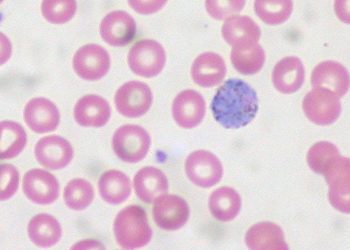Young adult romantic relationships and sexual activity before and during the COVID-19 pandemic
1. Youth have continued to engage in romantic relationships and sexual activity throughout the COVID-19 pandemic
2. Access to sexual health educations, services, and resources are required to meet the needs of young adults and adolescents
Evidence Rating Level: 2 (Good)
The COVID-19 pandemic has led to school closures and stay-at-home orders within The United States, impacting the social lives of adolescents (13-17), young adults (18-21), and their relationships. Previous studies have examined the effects of social distancing on peer acceptance, social connection, and mental health. However, there has been limited data on young people’s romantic and sexual relationships during the pandemic. This study aimed to address this gap and assess the impact of COVID-19 social distancing guidelines on romantic and sexual relationships of young people in Fresno County, California. Fresno County was disproportionately impacted by COVID-19 with higher rates of the virus than the state average and their schools closed for the 2020-2021 year. Participants aged 13-19 were recruited from a larger sample of participants enrolled in a 5 year, randomized controlled trial for sexual health education. Students were invited to complete an online survey about the impacts of COVID-19 on their living arrangements, their sexual and reproductive health, and the use of technology in their relationships. Furthermore, participants were asked questions regarding the impacts of physical distancing from intimate partners, sexual activities, online relationships, and baseline attitudes towards COVID-19.The use of the Chi-square test of independence allowed comparison between age groups (adolescents vs young adults), gender identity, and sexual orientation. A total of n=351 youth responded to the survey with the majority being females (72%), Hispanic (75%), and heterosexual (83%). Over one third (37%) of respondents were in a romantic relationship during the pandemic. Among these participants 34% were unable to spend time with their partner during the lockdown restrictions. This social distancing was mainly due to parental restrictions among adolescents compared to young adults (44% vs 20%). The stay-at-home orders lead to increased parental monitoring, less independence, and reduced privacy. However, the percentage of participants who had sex monthly declined by only 1% with similarly insignificant reductions among weekly and daily rates. Further studies are required to analyze the lasting impacts on mental health among youth with regards to their relationships. Relationships differed between adolescents and young adults due to their living situations and the influence of parents and caregivers. A limitation of the study was the relatively small sample size in only one county in California which may not be generalizable to the larger population. However, a strength of the small sample size was that it included primarily Hispanic participants, a demographic often underrepresented in research studies and in past surveys. Overall, the study reinforced the need for continued access to sexual and reproductive health services and education for youth even during pandemic lockdowns. Health care providers, schools, and community organizations should have resources available for youth during the COVID-19 pandemic in order to keep adolescents and young adults safe and healthy.
Click to read the study in BMC Public Health
Image: PD
©2021 2 Minute Medicine, Inc. All rights reserved. No works may be reproduced without expressed written consent from 2 Minute Medicine, Inc. Inquire about licensing here. No article should be construed as medical advice and is not intended as such by the authors or by 2 Minute Medicine, Inc.






